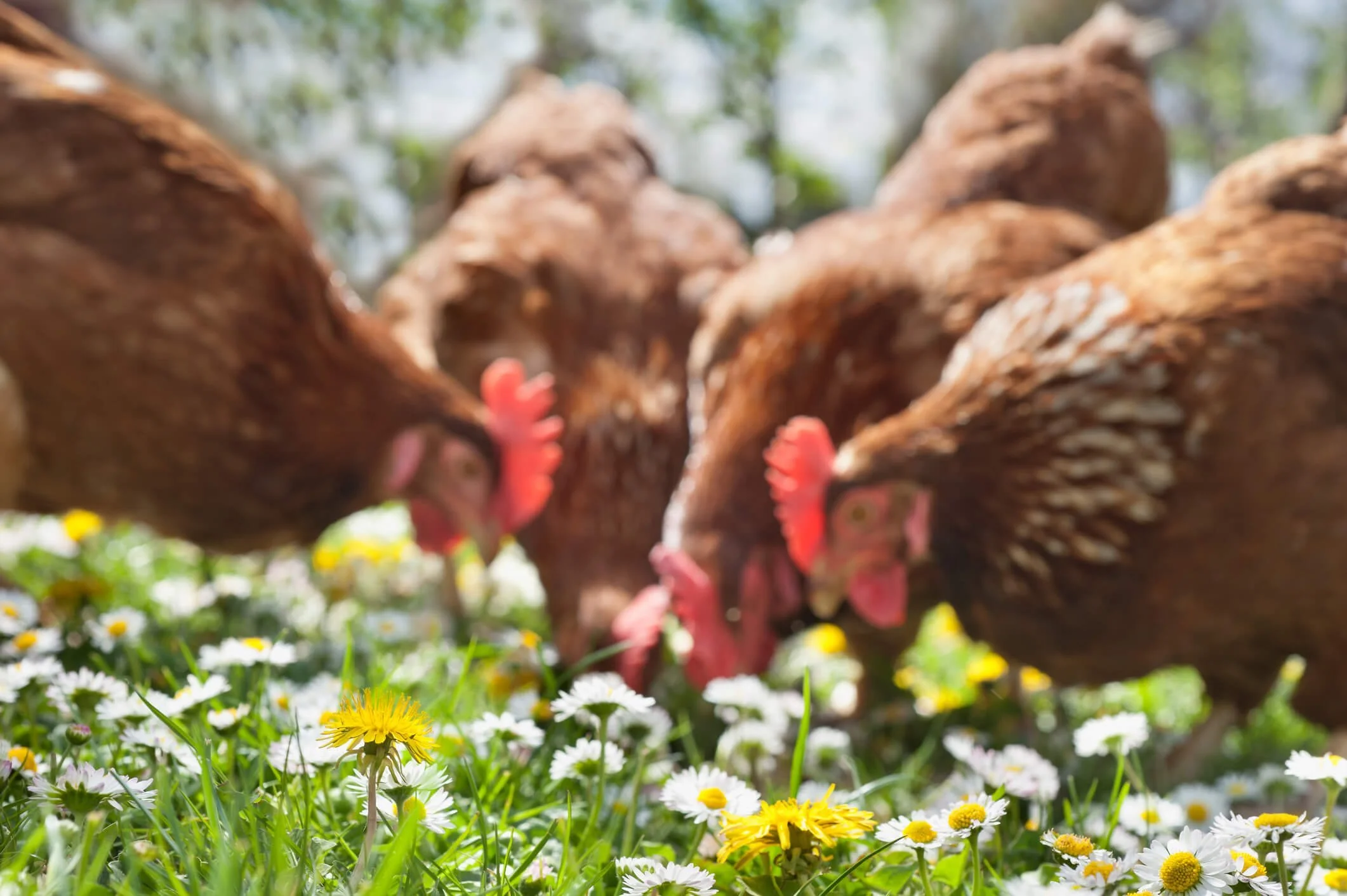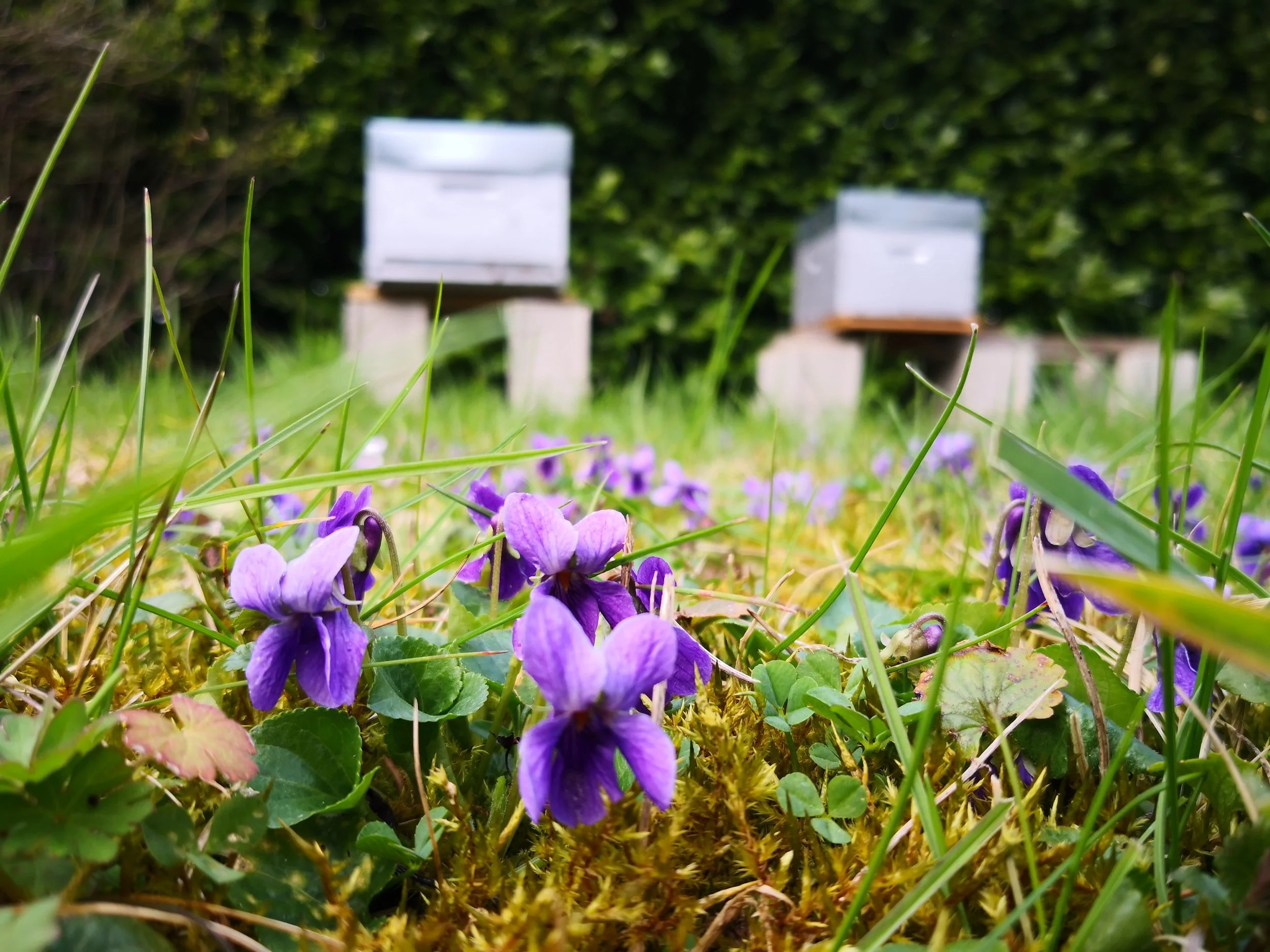Feed Chickens Naturally For Free With Perennial Weeds
Discover > Raising Chickens > Feed Chickens Naturally For Free With Perennial Weeds
Fresh chicken (how long does chicken last?) eggs and quality chicken meat. Those are some of the benefits of having your own backyard chickens. But feeding chickens can take its toll on your pockets especially when you use organic or non-GMO feed. Sometimes, the cost can even outweigh the benefits of having the eggs and meat. There are, however, several ways to reduce the expense of feeding your hens, some of which will not cost you anything at all. It just takes some planning, creativity, time and effort, but it will allow you to save money substantially.
What Should Chicken Diet Consist of?
Chickens do not necessarily require feed provided their diet still consists of a good balance of nutrients, a variety of options, some protein and enough space to move around and forage. They are naturally omnivores, their diet consists of plants, insects, seeds, and even small animals. In fact, before the twentieth century, the chicken diet consisted of grains, scraps, kitchen and garden waste products and whatever they could forage. Modern feeds were created when farming became more specialized and flocks became too large to be fed naturally. It largely consists of grains and supplements for protein, minerals and vitamins. But if you are managing a few heads, feeding them naturally would greatly be beneficial for you. Your flock will benefit from a well-balanced diet. Aside from having fresh and a variety of food that they can enjoy, it keeps them active and gives them something to do.
One of the options to feed your birds naturally for free is to feed them weeds. The clearest and most obvious benefit you get from feeding weeds to your chickens is to save some cash. Aside from that, it will help maintain your garden and property and save you some time doing the weeding yourself. Weeds are also nutrient-rich and they can give your chickens some health boosters. Free-ranging your chickens allows them to seek out weeds while they forage and wander around your property. Foraging helps keep your chickens active. Allowing your chickens to forage for weeds will enable them to have a varied diet including all the small insects, animals, and other nuts (how long do nuts last?) and seeds they could find. This will add to their nutritional needs while keeping them active and preoccupied.
In lawns and backyards, there are hundreds of different kinds of weeds, and many of them are edible for hens. Weeds spread quickly and are tough to eradicate. The following are some of the weeds that are high in nutrients that you may give to your hens.
Nettles
This perennial weed is pretty invasive and at the same time amazing. It is edible for both humans and chickens and it is full of nutrition. It grows almost anywhere and has little hairs growing on the leaves and stems that can give quite a sting. Nettles are packed with vitamins, nutrients, and minerals. It is antibacterial, antiparasitic, a natural detoxifier, and aids in respiratory health.
It is high in iron, calcium, and protein, and are excellent immune system boosters. It can help prevent internal parasites and can possibly treat an infestation. There are some poultry farmers who observed that their chickens have been consistently laying eggs for an entire year when given nettles.
Purslane
Purslane pops and grows out in unlikely places like in between cracks and patio bricks on the pavement or sidewalks. This succulent-looking weed with a reddish stem has small, green, smooth glossy leaves. It's an annual that thrives in poor soil, can survive drought, and can grow in hot regions.
It is abundant in iron, vitamins, and omega-3 and is one of the most widely used medicinal herbs. There have been studies showing that hens whose diet involves purslane significantly increased egg production, egg weight, and omega-3 fatty acid content in the eggs. Purslane is a tasty and great treat for both your flock and you. It is even used as toppings for salads in some restaurants.
Plantain
Another perennial herb that can commonly be found in lawns, ornamental beds, fields, or in the woods. It has heart-shaped leaves that are glossy and pop up in sandy soils. This weed is pretty invasive and is also known for its healing properties. It has been used medicinally and herbally for treating various diseases including digestive, respiratory, and liver ailments.
It's abundant in nutrients including calcium, iron, vitamin B1, and riboflavin, and it can boost your immune system. It can be eaten raw or fresh or used in salads or as a topical salve by both people and animals. It is well-loved by chickens and is edible for humans too!
Chickweed
One perennial weed and by its name, one that chickens love! It is one of the most common weeds that grows in gardens, pastures, lawns, and forests. This weed can survive the coldest winter and loves bare, damp and shady areas. It has small heart-shaped leaves and has tiny white flower rosettes. It has been recognized as a "superfood" for its nutritional and therapeutic benefits. Abundant in vitamins and minerals, it aids in immune system support.
Chickweed contains high amounts of omega 6 which adds nutritional benefits to the hen’s health and their eggs. It's been used as a natural pain reliever, anti-inflammatory, and digestive, kidney, and respiratory health help in traditional medicine. Chickens love chickweed based on nutrition and it’s easy to graze on as well. Even the youngest chicks can easily peck and eat chickweed as it is soft, small, low lying and easily digestible.
Violets
Violets are pretty wildflowers that are purple and are a delicious treat for your chickens. They can tolerate drought and can spread rapidly.
Rich in vitamins A and C, they are also known to help with circulation. They are edible for people too, and are great in soups, brewed teas, or garnish on salads.
Bee Balm
Generally not considered a weed but grows and spreads like one. This lovely plant can be found in most gardens and is distinguished by its purple-pink flowers and is well-loved by chickens.
Bee balm is a hardy perennial, a beautiful addition to your garden, and can help attract pollinators too. It is easily grown from seed and has antibacterial, antiseptic, and calming properties. Chickens will eat both the petals and leaves of the bee balm. And you can use it for brewing tea or garnish for salads and desserts too.
Clover
Clover is usually considered a perennial weed that is easy to grow. Clovers are legumes and are great for ground cover. They are nitrogen fixing, drought tolerant and can thrive in poor soil. Clovers are usually three-leaved, bright green and grow low to the ground.
There are different types of clover. The ones that are safe for poultry are those with white or red flowers. The entire clover plant including its flowers are edible and can feed other local wildlife such as bees and rabbits. One of the most nutritionally complete, they contain high vitamins A and B complex, protein, iron and potassium. Chickens fed with this weed have been found to have higher omega-3 content.
Dandelion
This yard weed is easily recognizable with its brilliant yellow flowers and jagged green leaves. They are bountiful and can grow almost everywhere. Dandelions are a great source of calcium, vitamins, and minerals which are greatly beneficial for laying hens. Dandelions are a natural diuretic and blood detoxifier which helps control internal parasites and detox the liver. Dandelions help stimulate the digestive system which helps your flock avoid chronic constipation and improve their intestinal health.
Both people and hens can eat and benefit from all parts of the dandelion. Roots can be added to coffee or made into tea. Flowers can be consumed or made into salves. Leaves, where most nutritional benefits are found, can be tossed into salads. Chickens can eat the entire plant from roots, to stems, leaves, and flowers. Regular feedings with hens have shown overall health enhancement and parasite control. Some studies even show that dandelions helped in reducing the replication of some viruses and that they contain active compounds that protect against harmful bacteria.
Weeds Also Contain Important Nutrients and Vitamins
Greens in any diet whether humans or animals optimize one's health. Feeding chickens a variety of greens from cover crops, excess garden vegetables, grass clippings and weeds enhances their health. Letting your flock free range and peck at some weeds will also enable them to enjoy the bugs and insects in their surroundings which are a great source of protein. Whatever we feed our flock goes into their eggs and their bodies and eventually becomes meat and food on our table. The healthier their diet will be, the healthier the eggs and meat we consume.
Weeds contain important nutrients, vitamins and even anti-cancer components that are not found in most chicken feeds. Most weeds are pretty invasive and often viewed as pests but they are actually nutritious and beneficial. Not all weeds are edible and good for your flock such as buttercup and daffodils. Naturally, chickens avoid plants that they cannot eat instinctively but it can’t hurt to take extra precautions and keep them away from these plants. Most of the weeds are perennials, they will grow for years with little maintenance. You might want to explore planting them outside your chicken coop to offer your flock some free nourishment. It would help bring down the cost of raising your birds.
A natural healthy, balanced, and varied diet is good for your chickens. It means that supplements and commercially formulated feed are not required. Though feeds and supplements are still good options for those who do not have the time, means and resources to manage a natural approach. Or as an emergency backup in case your natural food source is not enough. But If you are able to go with a natural and fresh diet, it would be best. This would help you raise naturally happy and healthy birds.
*This is the fifty-fourth in an ongoing series that teaches homesteading in Texas. This is not a sponsored post although it may contain affiliate links to recommended products and/or services
Go back to the previous article: How to have a Natural Non-Toxic Clean Home
Move forward to the next article: Attracting Beneficial Insects: The Garden Good Guys












